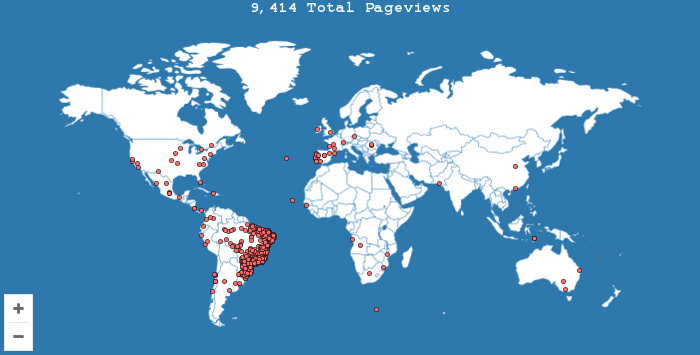Problemas Socioemocionales al retorno a clases presenciales: Caso Colegio Santa Isabel de Hungría, Santiago-Chile
DOI:
https://doi.org/10.31496/rpd.v23i48.1546Keywords:
Adaptação do aluno, adaptação social, comportamento social, psicologia social, emotividadeAbstract
After three semesters with online classes and a semester with reduced face-to-face capacity, the year 2022 began with normal classes, in which the Ministry of Education instructed at the end of the previous year a full school day and with activities according to the curricular prioritization set in 2020. However, the country's educational authority did not take into account that after two years in which the students were at home without direct socio-emotional friction and with illnesses or loss of relatives, they would return with serious difficulties for coexistence in the classrooms. Faced with this, the new authorities who took over the government of Chile on March 11 had to reduce the working day and request that the focus be on helping students adapt again to life together and respect each other. The situation was further complicated by the attitude of parents and guardians, for not being aware of the inappropriate or strange behavior of their sons and daughters, with a high level of stress, peer fights, drug use, suicide attempt, among others. The objective of this communication is to publicize the way in which the Santa Isabel de Hungria school has faced the return to face-to-face classes. This work is part of the epistemology of the social sciences, with a phenomenological and hermeneutic approach and the methodology used is descriptive, analytical and action-research.
Downloads
References
ARAB, L. Elías; DÍAZ, G. Alejandra. Impacto de las redes sociales e internet en la adolescencia: aspectos positivos y negativos. Revista Médica Clínica Las Condes, v. 26, n. 1, p. 7-13, jan. 2015. http://dx.doi.org/10.1016/j.rmclc.2014.12.001.
BISQUERRA, Rafael. Educación emocional y competencias básicas para la vida. Revista de Investigación Educativa, v. 21, n. 1, p. 7-43, 2003.
CAICEO, Jaime. El porqué del desarrollo insuficiente de la filosofía de las ciencias sociales. El Futuro del Pasado, Salamanca, España, v. 9, p. 393-418, 23 set. 2018. DOI http://dx.doi.org/10.14516/fdp.2018.009.001.014.
CAICEO, Jaime; MARDONES, Luis. Elaboración de tesis e informes técnico-profesionales. Santiago de Chile: Editorial Jurídica Conosur, 1998.
CASTILLO, Gabriel. Vocación y Orientación. 1. ed. Santiago, Chile: Fondo Editorial Educación Moderna, 1968.
CORNEJO-CHÁVEZ, Rodrigo; VARGAS-PÉREZ, Sebastián; ARAYA-MORENO, Rodrigo; PARRA-MORENO, Diego. La educación emocional: paradojas, peligros y oportunidades. Saberes Educativos, Santiago, Chile, n. 6, p. 1-24, jan. 2021. DOI https://doi.org/10.5354/2452-5014.2021.60681.
COSTA-RODRÍGUEZ, Claudia; PALMA-LEAL, Ximena; SALGADO, Carla. Docentes emocionalmente inteligentes. Importancia de la Inteligencia Emocional para la aplicación de la Educación Emocional en la práctica pedagógica de aula. Estudios Pedagógicos, Valdivia, Chile, v. 47, n. 1, p. 219-233, 2021. DOI https://doi.org/10.4067/S0718-07052021000100219.
GALLARDO, Gonzalo. Sostener, cuidar y aprender: lineamientos para el apoyo socioemocional en las comunidades educativas. Santiago, Chile: UNICEF, 2021.
HURTADO, Jacqueline. Metodología de la Investigación. Guía para la Comprensión Holística de la Ciencia. 4. ed. Bogotá-Caracas: Ediciones Quirón, 2010.
MARCHANT, Teresita; MILICIC, Neva; ÁLAMOS, Pilar. Impacto en los niños de un programa de desarrollo socioemocional en dos colegios vulnerables en Chile. Revista Iberoamericana de Evaluación Educativa, Madri, Espanha, v. 6m n.2, p. 167-186, 2013. Disponível em: https://revistas.uam.es/riee/article/view/3411. Acesso em: 21 dez. 2022.
MILICIC, Neva; MARCHANT, Teresita. Educacion emocional en el sistema escolar chileno: un desafío pendiente. In: Corvera V., María Teresa; Muñoz S., Gonzalo (ed.). Horizontes y propuestas para transformar el sistema educativo chileno. Santiago, Chile: Ediciones Biblioteca del Congreso Nacional de Chile, 2020. p. 53-76.
PAIVA, Isidora; BARRIGA, Fernanda. Salud mental infanto-juvenirl en Chile: Recomendaciones de Políticas Pública. Santiago, Chile: Fundación Todo Mejora - Universidad Adolfo Ibáñez, 2021.
VARONA-FERNÁNDEZ, Miriam; HERMOSA-PEÑA, Raquel. Percepción y uso de las redes sociales por adolescentes. RqR Enfermería Comunitaria, La Rioja, Espanha, v. 8, n. 1, p. 18-30, 2020.
Downloads
Published
How to Cite
Issue
Section
License
Submitted texts approved by the Editorial Board of Revista Profissão Docente will be published, and their authors may use them for future publications, provided that the original edition is properly cited (title, Revista Profissão Docente, volume, issue, year of publication, and page numbers of the referenced text). All articles published in this journal are the sole responsibility of their authors. Revista Profissão Docente and Universidade de Uberaba assume no legal responsibility for their content.
















